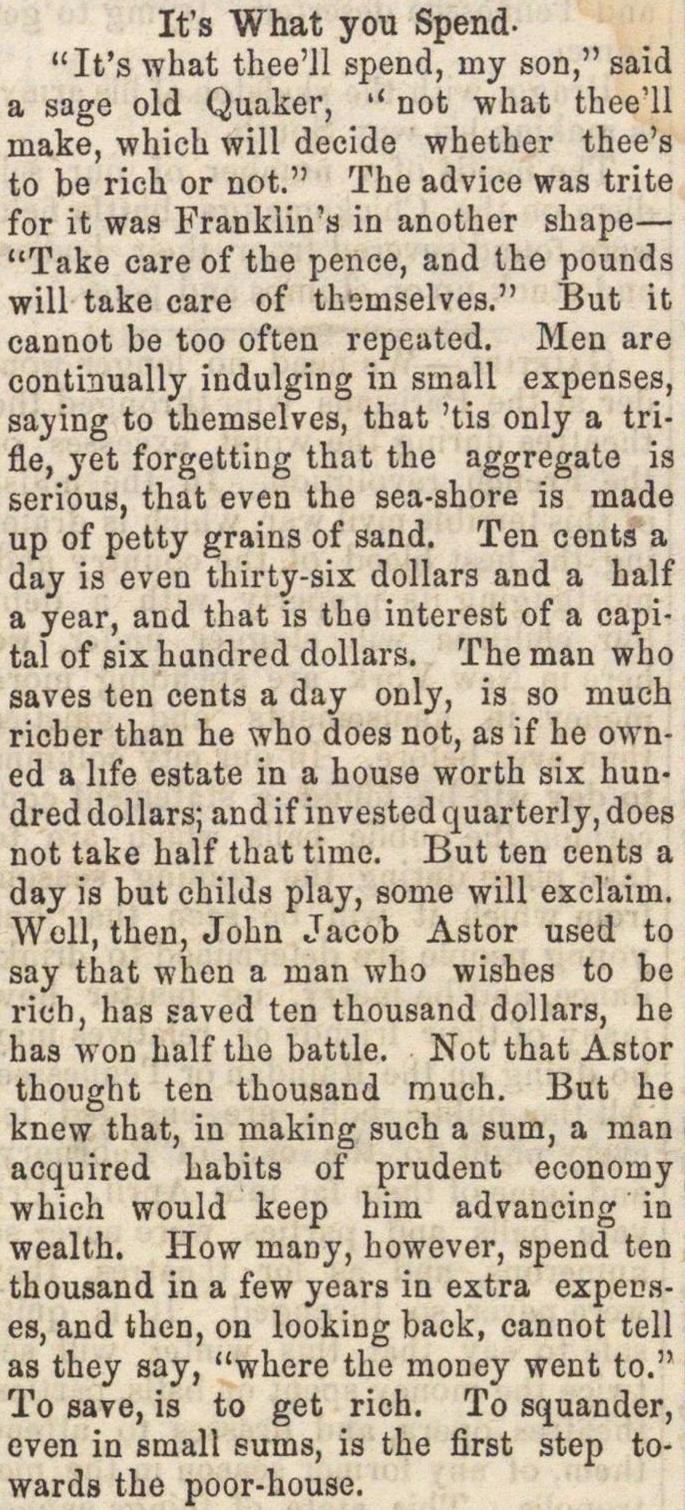It's What You Spend

"It's what thee'Jl spend, rny son," said a sage old Quaker, '' not what thee'll make, whicb will decide whether thee's to be rieli or not." The advice was trite for it was Franklin's in another shape - "ïake care of the pence, and the pounds will take care of themselves." But it cannot be too often repcated. Men are continually indulging in stnall expenses, saying to themselves, that 'tis only a trifle, yet forgettiog that the aggregate is serious, that even the sea-shore is made up of petty grains of sand. Ten cents a day is even thirty-six dollars and a half a year, and that is tho interest of a capital of sixhundred dollars. The man who saves ten cents a day only, is so much ricber than he who does not, as if he oivned a hfe estáte in a house worth six hundred dollars; and if in vested quarterly, does not take half that time. But ten cents a day is but childs play, sonie will exclaim. Wcll, then, John Jacob Astor used to say that when a man who wishes to be rich, bas saved ten thousand dollars, he has won half the battle. Not that Astor thought ten thousand much. But he knew that, in making such a sum, a man acquired habits of prudent economy which would keep him advancing in wealth. How many, however, spend ten thousand in a few years in extra expenses, and then, on looking back, cannot teil as they say, "where the money went to." To save, is to get rich. To squander, even in small sums, is the first step towards the poor-house.
Article
Subjects
Old News
Michigan Argus